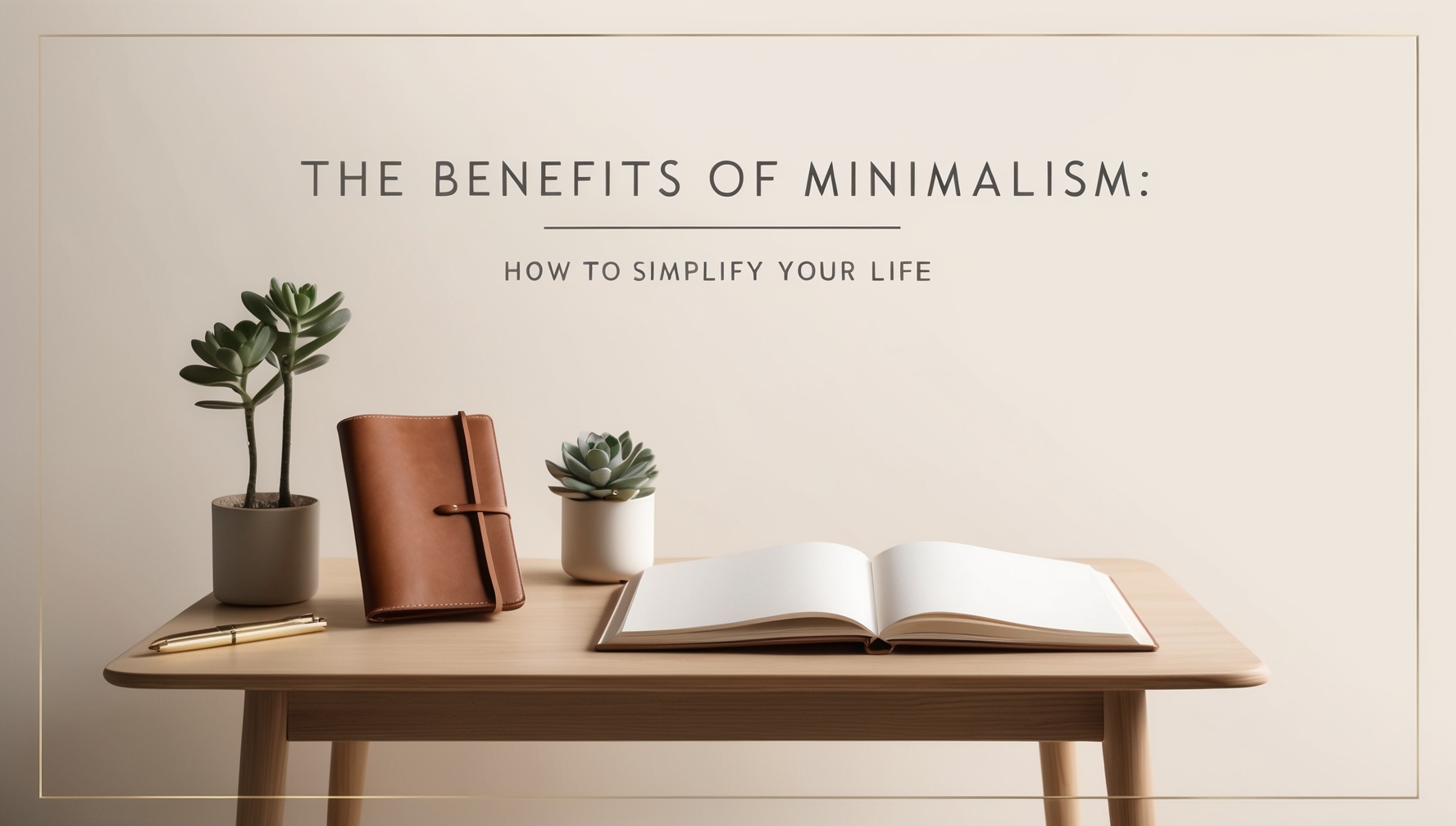Minimalism is a lifestyle that emphasizes living with less, focusing on what truly matters, and finding joy in simplicity. By embracing minimalism, individuals can experience a wide range of benefits that positively impact their physical, mental, and emotional well-being. This article explores the key advantages of minimalism and provides practical tips on how to simplify your life.
Reduced Stress and Anxiety
Clutter, both physical and mental, can contribute to feelings of stress and anxiety. Minimalism helps alleviate these negative emotions by creating a more organized and calming environment. Incorporating simple home organization tips can further enhance the sense of tranquility in your space. Studies have shown that individuals with cluttered homes tend to have higher levels of cortisol, the primary stress hormone, compared to those with tidy homes.
Increased Productivity and Focus
A minimalist lifestyle can enhance productivity and focus by eliminating distractions and creating a more streamlined environment. When surrounded by fewer physical objects, the brain can process information more efficiently, leading to improved cognitive performance.
Financial Benefits
Minimalism encourages conscious spending and saving. By reducing impulse purchases and focusing on acquiring only what is necessary, individuals can save money and allocate funds towards more meaningful goals, such as travel, education, or financial security.
Improved Physical and Mental Health
A minimalist lifestyle can positively impact both physical and mental health. Decluttering and creating a clean, organized living space can lead to better sleep, improved respiratory health, and a reduced risk of injuries from tripping over items. Mentally, minimalism can foster a sense of clarity, contentment, and freedom from the burden of excess possessions.
Environmental Benefits
Minimalism has a positive impact on the environment by reducing waste and consumption, making it a practical approach to sustainable living. By owning fewer items, individuals can decrease their carbon footprint and contribute to a more sustainable future.
Practical Tips for Simplifying Your Life
- Start with a decluttering session: Go through each room and identify items you no longer need or use. Sort them into categories such as keep, donate, sell, or discard.
- Adopt the “One In, One Out” rule: For every new item you bring into your home, remove one existing item. This practice helps maintain a balance and prevents the accumulation of unnecessary possessions.
- Prioritize experiences over material goods: Invest in experiences that bring joy and create lasting memories, such as travel, classes, or hobbies.
- Minimize digital clutter: Unsubscribe from unnecessary emails, delete unused apps, and organize your digital files to maintain a clear and focused online presence.
- Practice gratitude: Appreciate the value and functionality of the items you own, rather than constantly seeking new possessions.
Conclusion
Minimalism offers a path to a simpler, more fulfilling life. By embracing minimalism and focusing on what truly matters, individuals can experience reduced stress, improved health, financial stability, and a more positive impact on the environment. Remember, minimalism is a personal journey, and the key is to find the approach that works best for you and your lifestyle.
